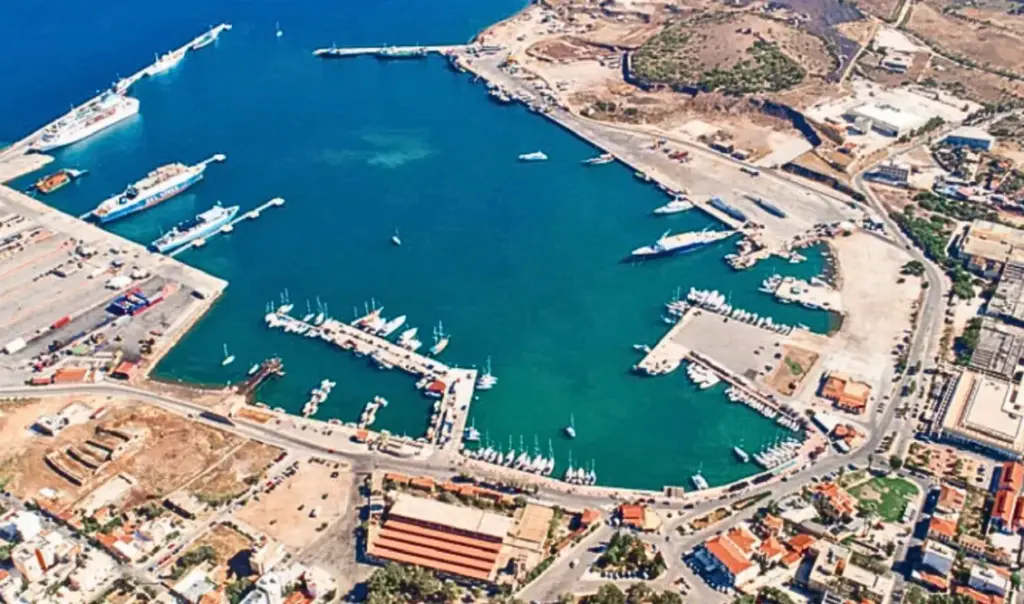Special emphasis on new investments was given during the specification of measures by Finance Minister Kyriakos Pierrakakis, following Kyriakos Mitsotakis’ announcements at the Thessaloniki International Fair. As already announced, the National Public Investment Program (PDE) is increasing from 2025 on a permanent basis by 500 million euros to finance and accelerate major public works. Consequently, the National PDE is set at 3.25 billion euros for 2025 and 3.3 billion euros for 2026, from 2.75 billion and 2.8 billion euros respectively that were projected in the Medium-Term Plan in October 2024.
Investments: What the new measures provide
One of the biggest challenges for 2026 is the successful completion of prerequisite targets and reforms and the full absorption of the Recovery and Resilience Fund (RRF). The goal is to absorb 4.9 billion euros from the RRF grants section in 2025 (compared to 3.4 billion euros in 2024) and the entire remaining amount, i.e., 7.2 billion euros in 2026. Additionally, final loan disbursements to private businesses and households of approximately 2.8 billion euros in 2025 and 4.4 billion euros in 2026 are projected. It should be noted that for loans contracted by the end of 2026, final disbursements take place in subsequent years depending on the completion stages of borrowers’ individual business plans.
Regarding other co-financed Programs (ESPA etc.), expenditures are expected to reach 6.2 billion euros in 2026 compared to 6.45 billion euros in 2025, as programs worth approximately 250 million euros that were not eligible in the co-financed section have now been transferred to the regular budget, keeping total spending unchanged.
Overall, Public Investment Program grants are expected to increase from 14.6 billion euros in 2025 to 16.7 billion euros in 2026, marking an increase of 2.1 billion euros mainly linked to increased Recovery and Resilience Fund disbursements.
Including the RRF loan section, total disbursements are expected to increase from 17.4 billion euros in 2025 to 21.1 billion euros in 2026, i.e., by 3.7 billion euros.
Planning of new business support actions
Just Development Transition Program
Within 2025: A new action is expected to be announced for supporting investment projects from 2,000 – 20,000€ (de minimis regime) from new and existing very small and small enterprises in mainland JDT areas (Western Macedonia Region & Municipalities of Megalopolis, Tripoli, Gortynias and Oichalia).
Within 2026: New cycle of business support actions, through the General Block Exemption Regulation (Reg. 651/2014), worth approximately 200 million€.
ESPA 2021 – 2027
The announcement of a 200 million€ action to support SME extroversion in manufacturing and services sectors is in progress, aimed at improving their products and services and strengthening their competitiveness and export activity. The subsidy rate amounts to 40-50% and the maximum support amount is 200,000€.
Actions expected to start within 2025 and be implemented within 2026:
• A targeted action is planned addressing sectors showing the greatest lag in our trade balance. This is a targeted action with a 50 million€ budget through which businesses will receive necessary support to improve their equipment, processes and know-how to become more competitive. Our goal through these two actions is to improve the country’s trade balance, attract new investments from abroad and create new employment opportunities for human resources.
• In the near future, an action will be announced to support self-employment of tertiary education graduates interested in starting new business activities. The main objective is to strengthen sustainable entrepreneurship, broaden the business base and attract new scientists from abroad (estimated budget: 70 million€ ).
• The European STEP initiative is being utilized, a new key EU tool for developing critical technologies that enhance the country’s competitive advantage. In the near future, funding is planned for an action for businesses that will proceed with investments in the development and/or production in the sectors of digital technologies, biotechnology and clean and resource-efficient technologies. The budget will amount to approximately 50 million€ and will concern small, medium and large enterprises.
Recovery and Resilience Fund
The budget of the InvestEU guarantee program increases by 300 million€ from the Recovery Fund. The additional funding of 300 million€ is directed exclusively to SMEs and the guarantee product that provides them access to loans for both working capital and equipment investments. With the additional support, loans worth 3.6 billion€ are expected to be mobilized, which will support at least 25,000 SMEs throughout the country.
INTERREG PP 2021-2027
Within 2025: The “Greece-Bulgaria 2021-2027″ program provides for support to very small and small enterprises as well as new entrepreneurs, social enterprises and civil society organizations with a budget of 5.8 million€, through the Small Project Fund – SPF).
Hellenic Development Bank
Active financing tools for SMEs continuing in 2026:
TEPICH III Portfolio Fund
• TEPICH III – Loan Fund, with additional resources of 240 million€
• TEPICH III – Guarantee Fund, with additional resources of 540 million€
The new resources in TEPICH III total an additional 780 million € for new business loans. The new total budget of the Fund amounts to 3.3 billion €.
Within 2026:
Agricultural Entrepreneurship Fund
The new Fund’s resources are distributed in two distinct financing tools, the Guarantee Fund for existing and new farmers and the Co-financed Microcredit Fund, which will cover all needs and challenges faced by the primary sector and agri-food sector. These financing tools will operate with a combination of financial incentives. Budget: up to 170 million€.
DeLFI Plus Guarantee Fund
This is the continuation of the existing DeLFI Guarantee Fund and is a modern financing tool that facilitates SME access to investment loans with favorable terms. The new tool is expected to be implemented in early 2026. Budget: up to 500 million€.
Patent Fund – Patent Fund
The Patent Fund aims to support and develop very small and small enterprises, providing them with capital for securing international patents and their commercial exploitation. The Fund aspires to fill a chronic funding gap in the Greek market, as most inventions either remain unpatented or never proceed to commercial application due to lack of suitable financing tools at early stages. Budget: 41.4 million€.
100% super-deductions of investment expenses in strategic defense and vehicle manufacturing sectors
To incentivize private investments in strategic sectors where activity in the Greek market is currently extremely limited, investment expenses related to defense and vehicle manufacturing sectors will be deducted from businesses’ gross income, at the time of their realization, increased by one hundred percent (100%). Additionally, these investments will be given the fast-track licensing incentive, as with strategic investments. The deduction will apply to initial investments starting in 2026, 2027 and 2028 and the following sectors:
• Manufacturing of weapons and ammunition (NACE 25.40)
• Manufacturing of motor vehicles (NACE 29.10)
• Manufacturing of electrical and electronic equipment for motor vehicles (NACE 29.31)
• Manufacturing of other parts and accessories for motor vehicles (NACE 29.32)
• Manufacturing of aircraft and related machinery (NACE 30.30)
• Manufacturing of military fighting vehicles (NACE 30.40).
The above support can take place based on Article 14 of Regulation 651/14 of the European Commission. The Ministry of Development will undertake the support procedure and related prerequisite controls. Support is granted for initial investment per area and concerns investment expenses in tangible and intangible assets. The investment is maintained in the area where support is granted for at least five years after investment completion. The total amount of support given in the form of tax deduction will amount to up to 150 million euros.
Tables with examples






